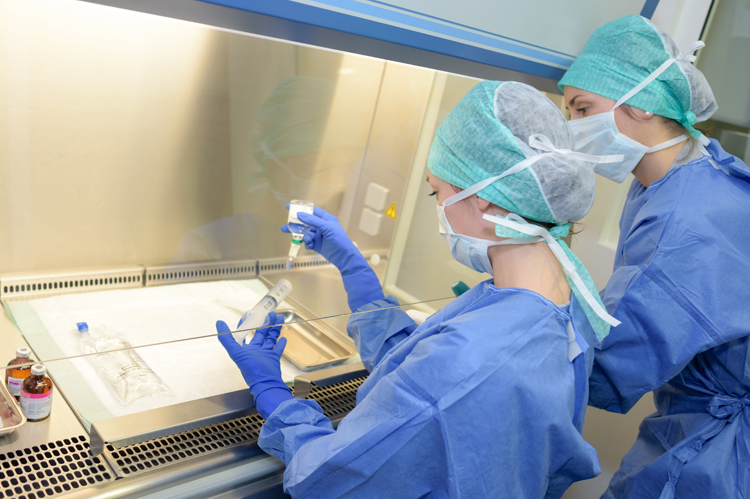Program
The Pharmacy Technology program prepares students for entry-level pharmacy technician positions in various pharmacy settings. Students gain knowledge and skills in pharmacology, pharmacy calculations, sterile and non-sterile compounding, and retail and institutional pharmacy operations through classroom instruction and simulation lab. The program includes a required externship to provide practical experience in a pharmacy environment.
Upon successful completion, students are qualified to apply for a California Pharmacy Technician license and sit for the Pharmacy Technician Certification Exam (PTCE) to earn the Certified Pharmacy Technician (CPhT) credential. This program will be seeking national accreditation by the American Society of Health-System Pharmacists (ASHP) and Accreditation Council for Pharmacy Education (ACPE).
Clinical Experience requires background checks, drug screenings, physical exams, immunization records, TB tests, and CPR certifications; specific sites may have additional requirements.
Program SLO: Demonstrate proficiency in the core skills and knowledge required for entry-level employment as a pharmacy technician in various pharmacy settings.![]() Estimated Cost
Estimated Cost
Enrollment Fees (CA Residents)
Cost per unit: $46.00
Total Units: 18 Units
Additional fees for books, licensing, background checks, and drug tests will apply.
Duration: Complete your certification in just two semesters.
Discover your financial aid options and learn more about community college’s affordable tuition.
COURSEWORK
- Introduction to Pharmacy Technology: An overview of the roles and responsibilities of pharmacy technicians in various settings.
- Pharmacy Calculations: Essential mathematical skills needed to accurately prepare and dispense medication.
- Pharmacology & Therapeutics for Pharmacy Technicians: Detailed study of drugs and their effects on the human body.
- Community Pharmacy Operations: Training in the operational aspects of retail pharmacy practice.
- Community Pharmacy Lab: Hands-on experience in a simulated retail pharmacy setting.
- Institutional Pharmacy Practice: Insights into the workings of pharmacies in hospitals and other institutional settings.
- Institutional Pharmacy and Sterile Compounding Lab: Advanced skills in preparing sterile medication forms, including adherence to safety standards.
- Pharmacy Clinical Experience I: Practical experience in a pharmacy setting, applying learned skills under supervision.


 My Canyons
My Canyons  Canvas
Canvas 
